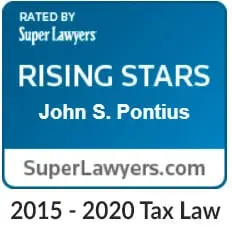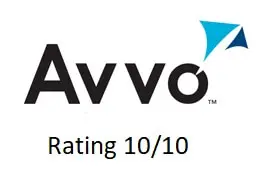A number of Americans hold a portion of their financial assets in foreign accounts. Yet even if these accounts are outside of American borders, a U.S. resident must still report it to the IRS on a yearly basis. A seasoned tax attorney could help ensure that you meet all of the reporting requirements set out by the federal government for offshore disclosure.
If you have financial assets abroad that have not yet been reported to the federal government, the IRS has set up several procedures you can use to come into compliance and reduce your penalty exposure if your actions were non-willful in nature. Let a Washington D.C. offshore disclosure lawyer review your situation and advise you on your next steps.
Reporting Income in Foreign Financial Accounts
The U.S. is one of the few countries that imposes tax on the worldwide income of its residents. There are a few ways that it accomplishes this. U.S. residents and U.S. citizens living abroad are required to file a Report of Foreign Bank and Financial Account (FBAR) if the aggregate balance of their foreign accounts exceeds $10,000 at any given time in the year. In addition, the Foreign Tax Compliance Act (FATCA), signed into law in 2010, requires the submission of Form 8938, Statement of Specified Foreign Financial Assets.
Generally, the IRS can only audit a tax return for three years. However, the failure to file international information returns stops the statute of limitations until those returns are filed. Civil penalties start at $10,000 for each unfiled international form for each year, with the most common forms being Forms 8938, 5471, 5472, 3520, 3520-A, and 926. If it is determined that the taxpayer was willful in their failure to file their international returns, criminal penalties are possible. During audit examinations, the IRS will ask the taxpayer if they have unreported income in any foreign accounts. A person should seek help from a Washington DC offshore tax compliance lawyer if the IRS has opened an investigation.
Disclosing Offshore Accounts to the IRS
For non-filers, the IRS offers several voluntary disclosure options for taxpayers to properly report their worldwide income and file their international information returns. The following options have different levels of protection, filing requirements and penalties, which an offshore lawyer could further explain:
- The Streamlined Domestic Offshore Procedures are for taxpayers who non-willfully failed to report their foreign income and file FBARs. Taxpayers need to provide a detailed certification narrative explaining the non-willful conduct, and are required to file three years of amended tax returns and six years of FBARs. In addition to paying the back taxes and related interest and penalties, a 5% offshore penalty will be based on the highest aggregate value of the foreign accounts.
- The Streamlined Foreign Offshore Procedures contains the same provisions as the Domestic Procedures with a couple of key differences. These procedures are for taxpayers who live outside the U.S. and there is also no offshore penalty.
- The Delinquent FBAR Submission Procedures are for taxpayers who timely reported and paid taxes on all foreign income and provide a statement as to why the FBARs were filed late. There are no penalties for these procedures.
- Quiet Disclosure involves filing the amended tax returns and international information returns outside of the IRS disclosure options. This is a risky approach because, if the IRS finds out, they could potentially impose civil penalties that are larger than those that are applied in the other disclosure options.
It may not be immediately clear which offshore disclosure program is preferable in a particular taxpayer’s situation. Therefore, it is best to confer with an experienced offshore lawyer in Washington DC who could analyze their financial situation and determine where their risk lies. Offshore tax compliance is a complicated process but a lawyer could provide valuable help.
Talk to a Washington DC Offshore Disclosure Attorney Today
Offshore bank accounts are a viable option for taxpayers seeking the flexibility of keeping assets overseas. However, maintaining these accounts can carry the risk of penalties if you do not engage in all of the requirements in a timely manner. If you find yourself in the situation of having to voluntarily disclose your foreign assets through offshore disclosure, you should pick your disclosure program carefully and follow all of the reporting requirements as instructed. Schedule a consultation with a Washington DC offshore disclosure lawyer for assistance.









